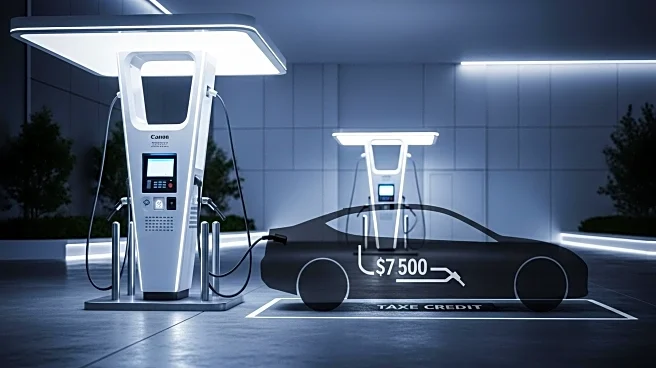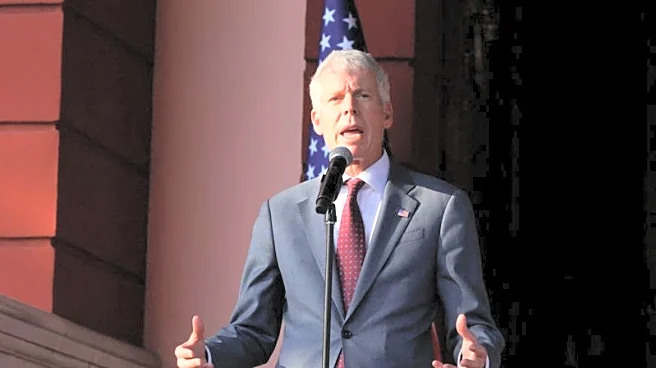What is the story about?
What's Happening?
As of October 1, 2025, federal tax credits for new, used, and commercial electric vehicles (EVs) have been discontinued. This change follows the Trump administration's campaign promise to end subsidies for clean vehicles. Previously, the Inflation Reduction Act of 2022 had revamped these incentives, requiring new EVs to have final assembly in North America and certain battery content to be domestically sourced. The end of these credits marks a significant shift in U.S. policy towards electric vehicles.
Why It's Important?
The removal of the $7,500 tax credit could have substantial implications for the EV market in the U.S. Automakers may face challenges in maintaining competitive pricing for EVs, potentially slowing the adoption of electric vehicles. This policy change could also impact the broader clean energy goals and efforts to reduce carbon emissions. Consumers who were considering purchasing EVs may now reconsider due to the increased cost, affecting sales and market dynamics.
What's Next?
Automakers and industry stakeholders will likely lobby for new incentives or policy adjustments to support the EV market. The discontinuation of these credits may prompt manufacturers to explore cost-reduction strategies or increase investments in domestic production to align with potential future policy changes. The impact on consumer behavior and the EV market will be closely monitored, as it could influence future legislative discussions on clean energy and transportation.

















